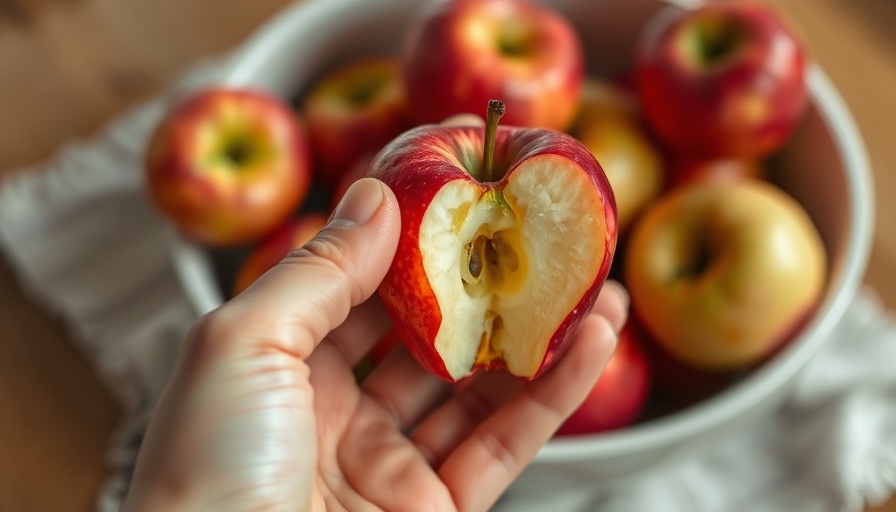
The Surprising Benefits of Eating Apples for Heart Health
When it comes to heart health, the saying, "An apple a day keeps the doctor away" carries more weight than we might think. Recent studies show that eating apples regularly can have significant benefits for blood pressure and cardiovascular health. With so many delicious varieties to choose from, this simple fruit could be your secret weapon for better health. Let’s explore how incorporating apples into your daily diet can foster healthier blood pressure and overall heart wellness.
The Role of Apples in Managing Blood Pressure
It may come as a surprise, but apples boast a wealth of nutritional benefits that support heart health. They are rich in antioxidants, flavonoids, and dietary fiber, all of which contribute to lowering blood pressure. Flavonoids found in apples help blood vessels relax, facilitating smooth blood flow and reducing the strain on your cardiovascular system.
According to findings published in health research, consuming just one medium apple daily can lead to noticeable improvements in blood pressure control over time. For individuals already at risk due to hypertension, integrating two apples a day could significantly lower their risk of serious health implications—such as heart disease or stroke—showing just how vital apples can be in a preventative health strategy.
The Power of Polyphenols and Antioxidants
Apples are not just tasty; they are also packed with polyphenols and antioxidants, which are crucial for fighting inflammation and cellular damage. The polyphenols in apples can modulate the body's inflammatory response and protect endothelial cells, which are vital in regulating blood pressure. One study found that participants who consumed apples demonstrated lower inflammatory markers, enhancing their cardiovascular health overall.
Eating raw apples, with the skin still intact, means reaping the benefits of these nutrients in their most concentrated form. By keeping the skin on, you increase your intake of beneficial compounds, doubling the fiber content and hence, maximizing the health benefits.
Fiber’s Essential Role in Heart Health
Another crucial component of apples is their fiber content. Apples contain soluble fiber, specifically pectin, which plays a significant role in cholesterol management. Soluble fiber binds to cholesterol in the digestive tract, helping to eliminate it from the body and thereby lowering overall cholesterol levels. This process helps maintain a healthy balance between low-density lipoprotein (LDL) and high-density lipoprotein (HDL) cholesterol, the latter being beneficial for heart health.
Incorporating apples into your meals can also aid in stabilizing blood sugar levels, preventing spikes that can lead to insulin resistance—a key risk factor for developing high blood pressure and heart disease.
Ways to Integrate Apples into Your Diet
Getting your daily apples doesn't have to be boring. Here are some creative ways to add apples to your diet:
- Top your oatmeal with raw apple slices for a hearty breakfast.
- Mix apples into salads for a refreshing crunch combined with greens.
- Blend apple chunks into smoothies to enhance flavor and nutrients.
- Create a wholesome dessert by baking apples with cinnamon and nutmeg.
You're only limited by your imagination. The goal is to enjoy the diverse flavors of apples while reaping their health benefits.
Apple Varieties and Their Unique Benefits
While all apples share health benefits, some varieties offer unique advantages. For instance, Gala apples are sweeter and perfect for snacking, while Granny Smith is excellent for cooking due to their tartness. Fuji apples, on the other hand, have a high sugar content, making them a delectable addition to fruit salads. Whatever your preference, the key is diversity—different apples provide different nutrients and flavors.
Understanding the Impact of Processed Apple Products
While whole apples are beneficial, beware of processed apple products, such as juices and applesauce, which often lack fiber and contain added sugars. Consuming whole apples is where you’ll find the greatest cardiovascular benefits. Moreover, always wash apples thoroughly to remove any pesticide residues while still enjoying the core health benefits they offer.
Conclusion: One Simple Change for a Healthier Heart
In summary, adding an apple or two to your daily diet can greatly influence your blood pressure and overall heart health. Their array of nutrients and fibers not only support blood pressure management but also work together synergistically to protect against heart diseases. Embrace the humble apple, and take a step toward a healthier, more vibrant life. So why not start today? Grab an apple, and enjoy the health benefits it brings!
 Add Row
Add Row  Add
Add 




Write A Comment